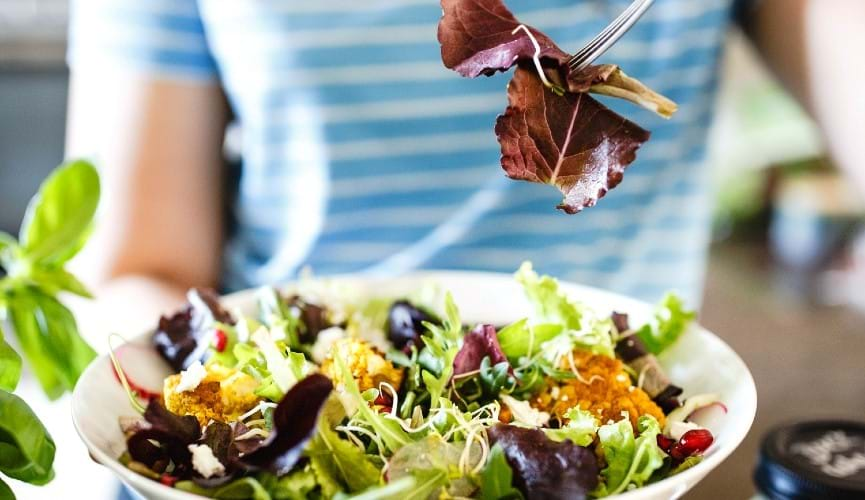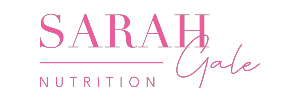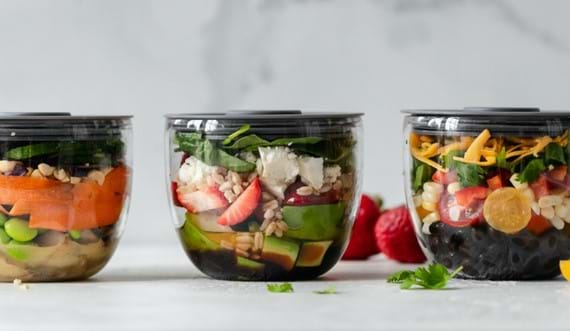5 nutrients vegetarians should be mindful of
Following a more plant based diet, such as a vegetarian or vegan diet, can often encourage more fibre rich and colourful, nutrient dense foods to be included in meals. Whilst a plant based diet can be incredibly healthy, it can also increase the risk of several nutrient deficiencies.
One of the main challenges when following a plant based diet is learning new food sources for different nutrients to help maintain a healthy and balanced diet.
As this week marks National Vegetarian Week, Registered Nutritionist Sarah Dumont-Gale will be sharing the top five key nutrients to be mindful of when following a vegetarian diet and what you can do to support your intake.
About Sarah
After a lifetime of hating her body, constant health kicks and failed trips to the doctors to work out why she felt so awful, Sarah finally got to the root cause of her symptoms. She discovered that by balancing her hormones, healing her gut and resyncing with her body she could finally get her health, happiness and confidence back.
Sarah is now a Registered Nutritionist DipION mBANT CNHC and hormone expert, and helps women struggling with period problems restore a healthy cycle, live a PMS-free life and feel confident in their own skin again.
5 nutrients vegetarians should be mindful of
Vitamin B12
Top of the list, Vitamin B12 is an essential nutrient for nerve health and low levels can cause many symptoms including fatigue, pins and needles, low mood and memory problems. Vitamin B12 is predominantly found in animal products such as meat, fish, eggs and dairy, which can make getting enough B12 a little tricky on a vegetarian diet.
Whilst some foods are fortified with vitamin B12, this is actually an ‘analogue’ of the vitamin which can compete with the ‘true’ vitamin B12 for absorption, so fortified foods are not always the best source.
A vegetarian diet needs to be rich in eggs and good quality dairy products to support vitamin B12 levels, and anyone not regularly consuming these foods should look to supplement instead.
Iodine
Whilst iodine is also found in meat and fish, seaweed is actually the best natural source of iodine. As seaweed is not routinely eaten in the Western world (apart from the occasional sushi) vegetarians are open to iodine deficiency.
Iodine cannot be stored in the body for a long period of time so it must be eaten regularly and low iodine intake can contribute to thyroid problems. However, when it comes to the thyroid, iodine is a bit like goldilocks, as excessive iodine intake can equally cause thyroid problems. Please always speak to your healthcare provider if you suffer from a thyroid condition before increasing your seaweed consumption.
Iron
Iron is an ‘essential’ nutrient meaning we must obtain it from our diets as the body cannot produce it naturally. Whilst there are plentiful sources of plant based iron rich foods such as tofu, beans, lentils and dark leafy greens, this form of iron, known as non-heme iron, is generally not well absorbed by the body. However, absorption can be enhanced by consuming vitamin C rich foods alongside plant based sources of iron, and a squeeze of fresh lemon juice over meals is a great way to do this.
Iron is vital for energy production in the body and women during their menstruating years require more iron, so it is important to regularly consume iron rich foods and if you notice a drop in your energy levels, get your iron levels checked.
Omega 3
Omega 3 fatty acids are essential fats and all round anti-inflammatory super stars. They have numerous health benefits including supporting brain function, mood, hormone health, joint health, heart health and much much more!
There are three main omega 3 fatty acids, alpha linolenic acid (ALA) which is predominantly found in plant based foods such as flax, hemp, walnuts and chia seeds, and eicosapentaenoic acid (EPA) and docosahexaenoic acid (DHA) which are mainly found in oily fish.
ALA needs to be converted into EPA and DHA to reap the full anti-inflammatory benefits, however the conversion is generally poor. Keeping processed foods, margarines and sunflower oil low in the diet can help to enhance this conversion by reducing the inflammatory sources of omega 6.
Zinc
Zinc plant based sources are plentiful, however their absorption, much like iron, is generally reduced. Hemp, pumpkin seeds and other nuts and seeds are brilliant plant based sources of zinc which are important for immune function, wound healing and supporting skin health. Soaking, fermenting or sprouting plant based sources of zinc can help to increase the absorption.
Sarah’s Top 5 Product Picks
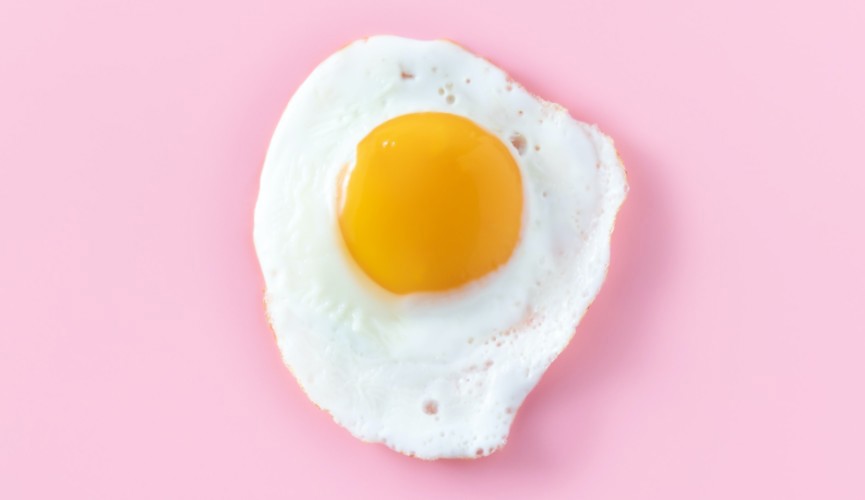
Eggs are one of the best vitamin B12 sources when following a vegetarian diet. Perfect for whipping up a quick breakfast of scrambled eggs, and for an added bonus of vitamin B12, add a dash of milk or sprinkling of cheese.
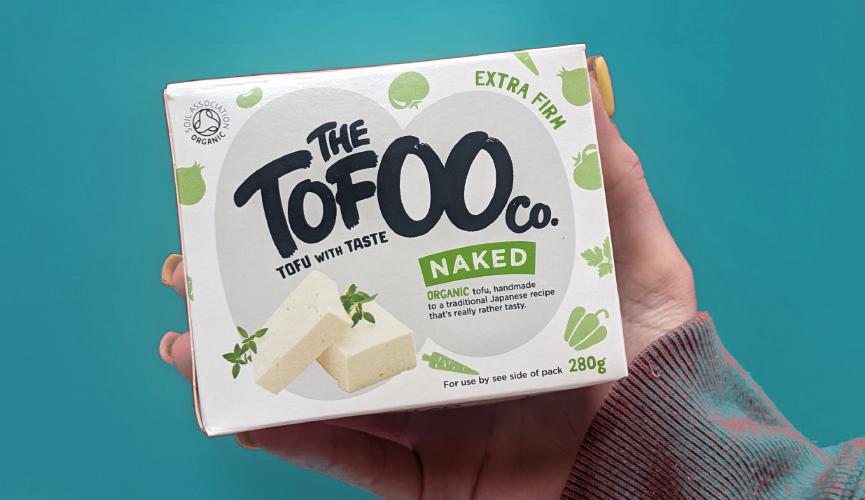
Tofu can be a bit of a faff to cook with, but not this one! The ToFoo Co Tofu is an extra firm tofu which makes it perfect for cubing and adding into stir frys, curries or stews. Remember, pair with vitamin C rich foods such as kale or red pepper to enhance the iron absorption. Opt for ‘Naked’ if you want to add your own flavour, or the ‘Smoked’ flavour which is delicious when mashed to make a mock ‘scrambled egg’.
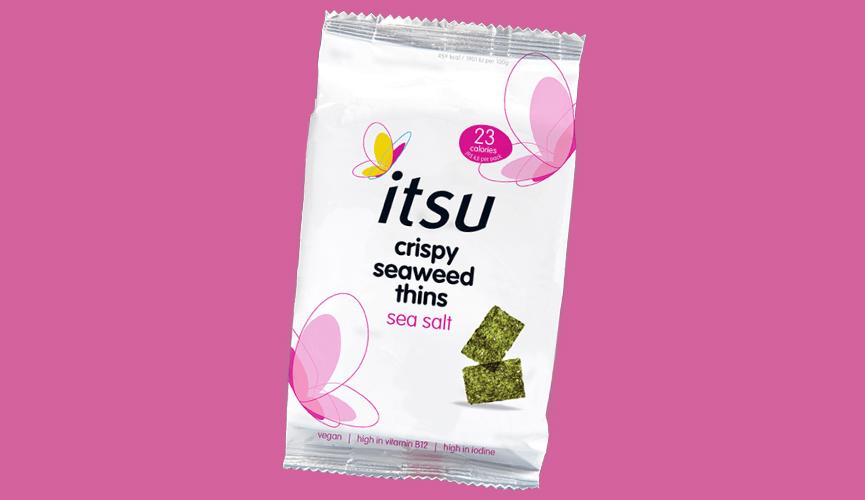
Delicious salty strips rich in iodine. These Itsu Crispy Seaweed Thins make a great snack, especially when on top of an oatcake smothered in hummus. Sarah’s personal favourite way to enjoy them is crushed up over a salad to add a delicious crunchy texture.
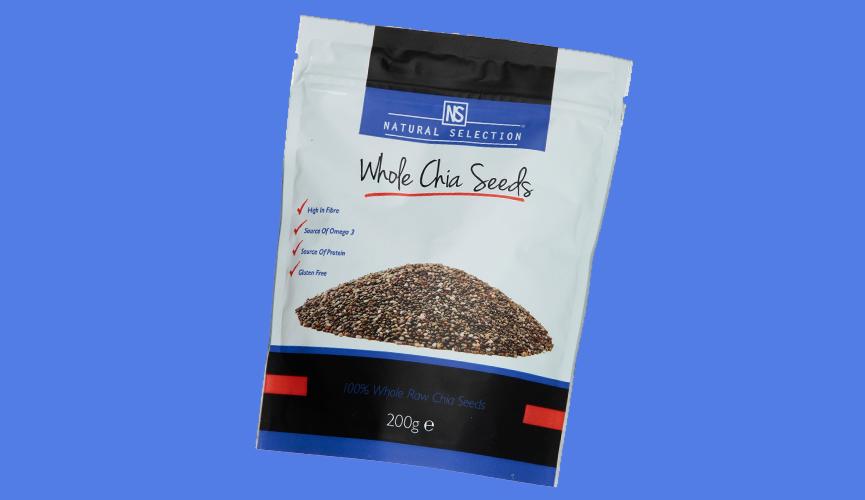
Need a new breakfast idea? Look no further than chia seed pudding. Mix 2 tbsp of chia seeds with around 250ml of milk, leave overnight and eh voila! Top with your favourite toppings in the morning and your omega 3 rich breakfast is good to go.
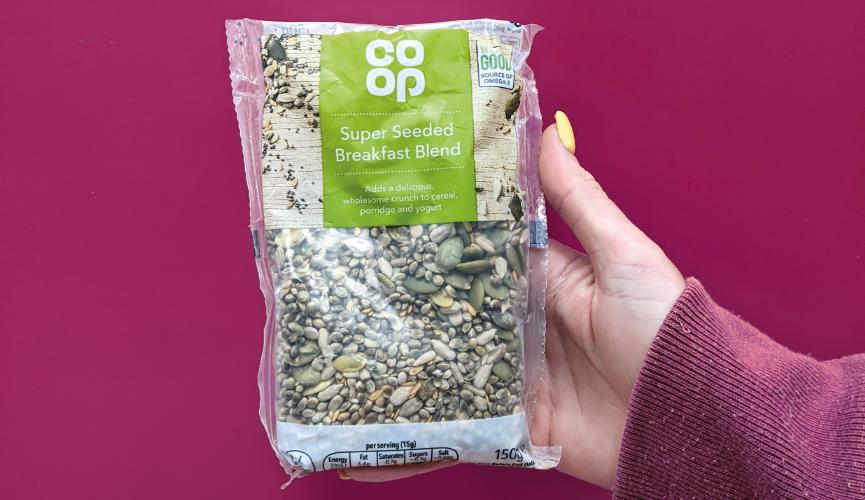
Packed full of seeded goodiness, the Coop Super Seeded Breakfast Blend has got your zinc intake covered. Sprinkle over your morning porridge, cereal or yoghurt, or add a handful over lunch time salads for additional crunch. As an added bonus, the seeds are also rich in omega 3.


